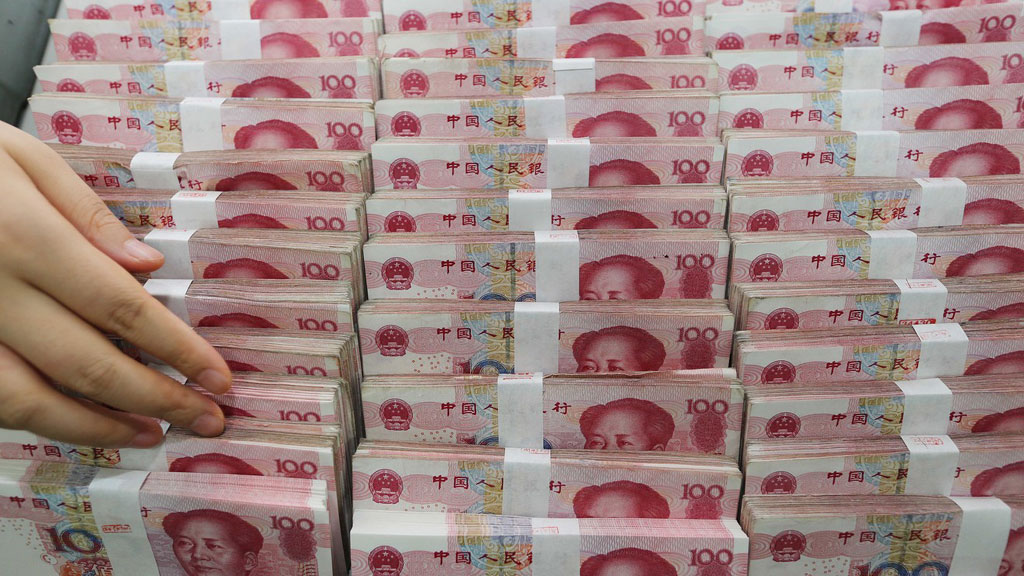 SINGAPORE: Most Asian currencies weakened against the dollar on Tuesday as revived US sanctions on Iran and escalating trade tensions between Beijing and Washington tempered appetite for emerging market foreign exchange.
SINGAPORE: Most Asian currencies weakened against the dollar on Tuesday as revived US sanctions on Iran and escalating trade tensions between Beijing and Washington tempered appetite for emerging market foreign exchange.
The worsening trade war between China and US supported the dollar index against a basket of six major currencies, which rose to a near three-week high of 95.515, before pulling back slightly to 95.337.
The Philippine peso posted early gains on higher-than-expected inflation, which supported views the central bank will raise interest rates this week, but the currency later slipped into negative territory.
Meanwhile, Washington reintroduced sanctions on Iran at 0401 GMT on Tuesday, amid opposition from Europe, China and India, adding to investor concerns.
"It remains unclear if the US would provide waivers for countries looking to import Iranian oil, although the administration may discuss requests on a case-by-case basis," Mizuho analysts said in a note.
China's yuan extended losses even as the country's central bank took measures to rein in sharp declines in the yuan.
The People's Bank of China (PBOC) on Friday introduced requirements for banks to keep reserves equivalent at 20 percent of their clients' dollar forward positions, effectively making it more costly to short the yuan and helping it rebound from a near 15-month low against the greenback.
China proposed retaliatory tariffs on $60 billion worth of US goods on Friday, as a senior Chinese diplomat cast doubt on prospects of talks with Washington to solve their bitter trade conflict.
"Markets fear an escalation of a trade war more than the PBoC's measure to discourage speculative RMB shorts," Mizuho analysts said in a note.
The yuan has lost about 8.5 percent of its value against the greenback since the end of March and is down 5 percent from the start of the year.
Taiwan's dollar, the Thai baht and the Singapore dollar were mostly unchanged.
South Korea's won and the Malaysian ringgit weakened the most among regional currencies, inching 0.13 and 0.15 percent lower, respectively.
The Indian rupee was the only regional currency to strengthen, trading up 0.1 percent. However, it remains the worst performing currency in the region, having weakened more than 7 percent so far this year.
"The overall view is that the rupee won't breach 70 levels (to the dollar) compared to earlier views of 72. So that is triggering some exporter dollar selling at the current levels," said a dealer at a private bank in India.
THE PHILIPPINE PESO
Philippine's peso reached its firmest since June 8 during the session before giving up gains to end 0.1 percent weaker.
Data showed that Philippine's annual inflation accelerated in July and increased expectations for further policy tightening this week.
The country's central bank, which is due to meet on Aug. 9, raised its benchmark interest rate by 25 basis points each in May and June, to tame inflation and shore up the peso, which has been battered by concerns over a widening current account deficit and capital outflows.

















Comments
Comments are closed.